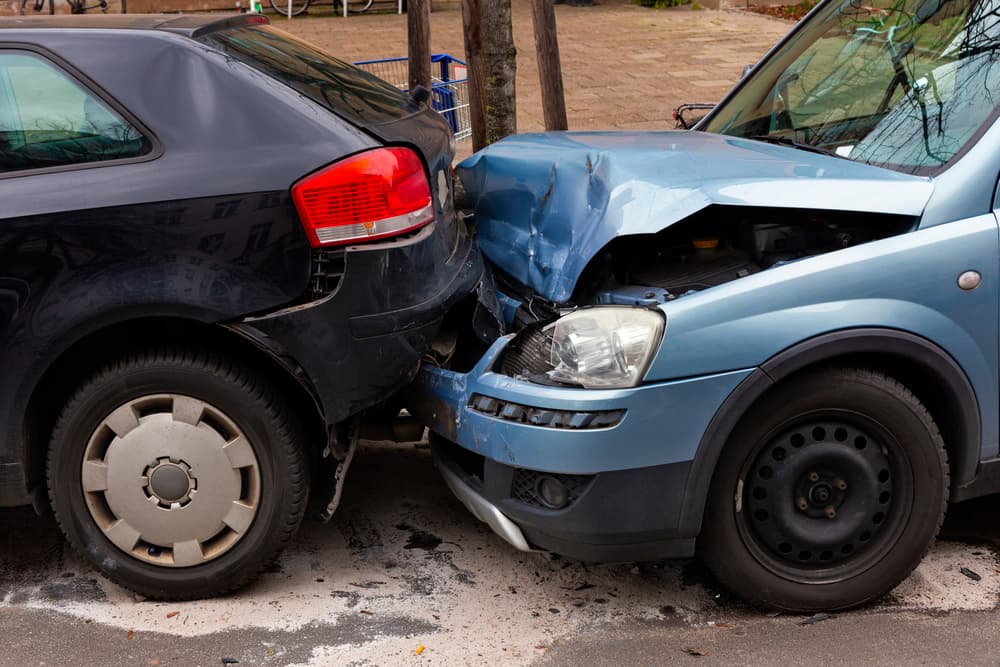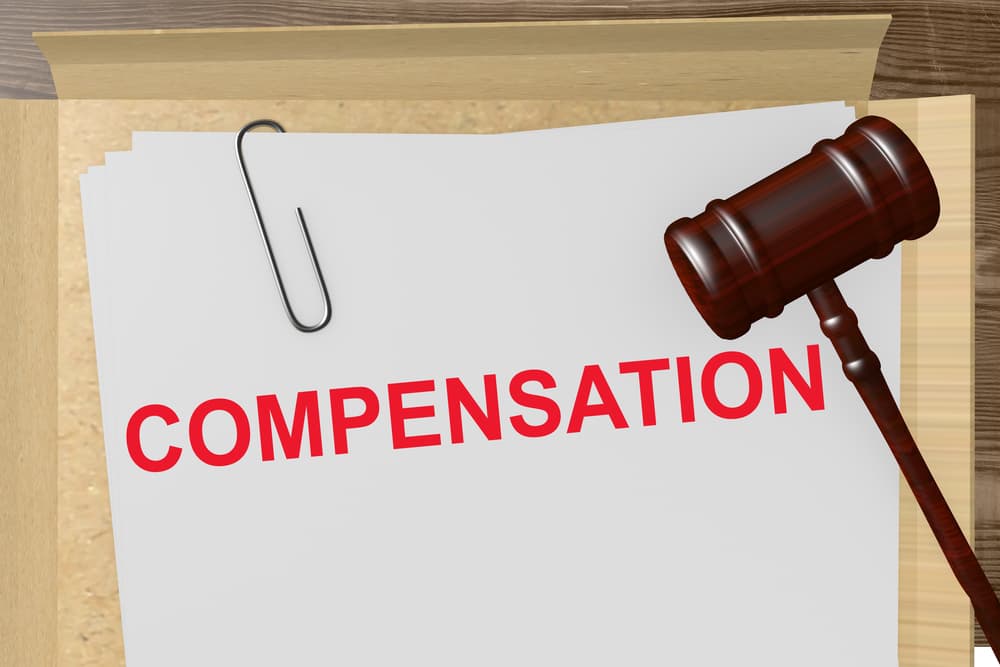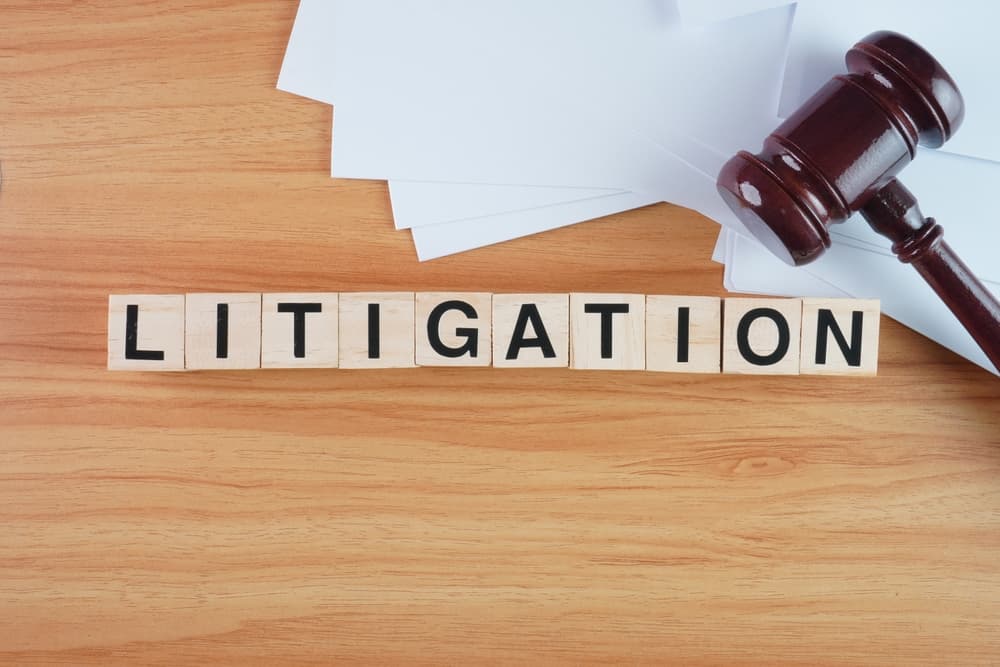Car accidents frequently happen when other drivers disregard traffic laws, drive recklessly, or exhibit road rage. If you suffered injuries in a car crash that a negligent driver caused, you can file a claim with the responsible driver’s insurance company. However, insurance companies and their adjusters are frequently difficult to work with. Many insurance companies will do everything possible to undervalue a claim or deny it altogether.
A skilled car accident attorney in your jurisdiction can fight for your rights at every stage of the proceedings. Your lawyer will aggressively negotiate with the insurance company or threaten litigation to pursue a fair compensation amount on your behalf.
Most Common Injuries in Car Accidents

Car accidents due to negligent driving can result in a wide range of injuries and medical complications. These injuries can be physical or mental, each with its own set of treatments.
Physical Injuries
The most common physical injuries from car accidents include whiplash, broken bones, and head injuries.
Whiplash is a neck injury caused by a sudden jerking motion, often seen in rear-end collisions. Symptoms include neck pain, stiffness, and headaches. Treatment typically involves rest, physical therapy, and pain relievers.
Broken bones are another frequent injury. The impact of a crash can fracture arms, legs, ribs, or even the spine. Depending on the severity, treatment can range from casting and splinting to surgical intervention. Recovery can take weeks to months, and physical therapy is often needed to restore full function.
Head injuries are particularly serious and can range from concussions to traumatic brain injuries (TBI). A concussion can cause headaches, confusion, and dizziness, usually treated with rest and a gradual return to activities. TBIs can have more severe effects, such as memory loss, cognitive impairment, and personality changes, often requiring extensive medical treatment, rehabilitation, and long-term care.
Mental Injuries
Mental injuries from car accidents are also common and can be just as debilitating as physical injuries.
Post-traumatic stress disorder (PTSD) is a major concern. Symptoms include flashbacks, severe anxiety, and uncontrollable thoughts about the accident. Treatment typically involves psychotherapy, such as cognitive-behavioral therapy (CBT), and medications to manage anxiety and depression.
Depression and anxiety can develop after an accident, particularly if the victim is dealing with significant pain, disability, or financial stress. Treatment often includes a combination of medication and therapy. Support from family and friends is also crucial in the recovery process.
Treatment and Recovery
The treatment and recovery process for car accident injuries is complicated. Immediate medical attention is crucial for diagnosing and treating physical injuries. Follow-up care often includes physical therapy to restore mobility and strength. For mental injuries, early intervention with therapy can significantly improve outcomes.
In addition to medical treatment, legal and financial assistance may be necessary to cover the costs associated with the accident. Rehabilitation programs, support groups, and counseling services play important roles in helping victims recover physically and mentally.
Car Accidents Due to Driver Negligence

Car crashes resulting from the negligence of other drivers can vary widely in nature and severity. Common types of car crashes include the following:
- Rear-end Collisions — One of the most common car crashes is the rear-end collision. This occurs when one vehicle crashes into the back of another. Negligence such as distracted driving, tailgating, or sudden braking often leads to these accidents. Rear-end collisions can cause whiplash, back injuries, and sometimes more severe spinal damage.
- Head-on Collisions — Head-on collisions are among the most dangerous and deadly car crashes. These occur when the front ends of two vehicles collide. This type of crash often results from drivers swerving into oncoming traffic, driving under the influence, or falling asleep at the wheel. The impact can cause serious injuries, including traumatic brain injuries, broken bones, and internal injuries.
- Side-impact Collisions — Also known as T-bone collisions, side-impact crashes happen when the front of one vehicle strikes the side of another. These often occur at intersections when a driver runs a red light or fails to yield the right-of-way. Side-impact collisions can be particularly dangerous for the occupants on the side of the impact, leading to injuries such as broken ribs, pelvis fractures, and head injuries.
- Sideswipe Collisions — Sideswipe collisions occur when two vehicles traveling in the same direction make side-to-side contact. These accidents typically happen when a driver changes lanes without checking blind spots or signaling. Sideswipe collisions can lead to loss of control, resulting in secondary crashes with other vehicles or objects, and can cause injuries ranging from minor bruises to severe trauma.
- Rollover Accidents — Rollover accidents are when a vehicle tips onto its side or roof. These crashes can occur due to sharp turns at high speeds, overcorrection of steering, or collisions with other vehicles or objects. SUVs and trucks are more prone to rollovers due to their higher center of gravity. Injuries in rollovers can be severe, including head and neck injuries, spinal cord injuries, and sometimes fatalities.
- Multi-vehicle Pile Ups — Multi-vehicle pile ups involve multiple cars crashing into each other, often on highways or freeways. These crashes can start with a single collision and escalate quickly as more vehicles become involved. Factors contributing to pileups include poor visibility, high speeds, and driver inattention. Injuries can be extensive, ranging from minor cuts and bruises to life-threatening conditions.
Ways of Fighting the Insurance Company After a Car Accident
Dealing with insurance companies after a car accident can be a challenging and frustrating experience. Many people find that insurance companies are not as helpful as they expect, often complicating the process of receiving fair compensation. Insurance companies can be difficult for several reasons:
- Profit Motives — Insurance companies are businesses, and like all businesses, they aim to make a profit. Paying out large settlements goes against their financial interests, so they often look for ways to minimize the amount they have to pay.
- Delay Tactics — Insurance companies may use delay tactics to frustrate claimants into accepting lower settlements. They may request unnecessary documentation, repeatedly ask for more information, or simply take a long time to respond.
- Denying Claims — Another common tactic is to deny claims altogether. Insurance companies may argue that the policy does not cover the accident, that the claimant was at fault, or that the injuries are not as severe as reported.
- Lowball Offers — Even when they do offer a settlement, insurance companies often start with a lowball offer, hoping the claimant will accept less than what they deserve. This initial offer is typically much lower than the actual value of the claim.
An experienced car accident attorney can help in several ways. These include the following:
- Knowledge of the Law — An experienced car accident attorney understands the intricacies of insurance laws and can navigate the legal system effectively. They know how to interpret policy language and identify when an insurance company is acting in bad faith.
- Negotiation Skills — Attorneys are skilled negotiators. They know the tactics insurance companies use and can counter them effectively. By negotiating on your behalf, an attorney can often secure a much higher settlement than you would be able to get on your own.
- Evidence Gathering — To strengthen your case, an attorney will gather all necessary evidence, such as medical records, police reports, and witness statements. This comprehensive approach ensures that your claim is well-supported and difficult for the insurance company to dispute.
- Litigation — If negotiations fail, an attorney can take your case to court. The threat of litigation often encourages insurance companies to settle more fairly because they want to avoid the costs and risks associated with a trial.
- Peace of Mind — Perhaps most importantly, having an attorney on your side gives you peace of mind. You can focus on your recovery while your attorney handles the legal battle.
Insurance companies can be difficult to deal with after a car accident due to their profit motives and various tactics to minimize payouts. An experienced car accident attorney can fight these tactics, using their legal knowledge, negotiation skills, and ability to gather evidence, ensuring that you receive the compensation you deserve.
Recoverable Compensation in a Car Accident Case

The value of a car accident case is determined by various factors that assess the extent of damages and losses the victim suffered. Understanding these factors can help in estimating the potential compensation that accident victims may recover.
Factors Determining Case Value
- Severity of Injury — The seriousness of the injuries sustained in the accident is a major factor. More severe injuries, such as broken bones, spinal cord injuries, or traumatic brain injuries, typically result in higher compensation due to increased medical costs and longer recovery times.
- Medical Expenses — The cost of medical treatment, including hospital stays, surgeries, medications, physical therapy, and future medical care, plays a crucial role. Comprehensive documentation of medical expenses helps determine the overall value of the case.
- Loss of Earnings — If the accident causes the victim to miss work, they may be entitled to compensation for lost income. This includes not only the income lost during the recovery period but also any potential future earnings if the injuries result in long-term disability.
- Property Damage — The cost of repairing or replacing the victim’s vehicle and any other personal property damaged in the accident is also important. Detailed repair estimates or receipts are necessary to support these claims.
- Pain and Suffering — Compensation for pain and suffering addresses the physical pain and emotional distress the accident caused. This is often more subjective and can vary greatly depending on the circumstances of the case and the effects on the victim’s quality of life.
- Loss of Consortium — In some cases, victims may seek compensation for loss of consortium, which refers to the repercussions of the accident on their relationship with their spouse or family. This can include loss of companionship, affection, and support.
Types of Damages
- Economic Damages — These are quantifiable financial losses, including medical expenses, lost income, and property damage. Economic damages are typically straightforward to calculate and document.
- Non-economic Damages — These include pain and suffering, emotional distress, and loss of consortium. Non-economic damages are more subjective and can vary based on the severity of the effects on the victim’s life.
- Punitive Damages — In cases of extreme negligence or intentional harm, the court may award punitive damages. These punish the wrongdoer and hopefully deter similar behavior in the future. Punitive damages are less common and usually require a higher standard of proof.
Understanding these factors helps with estimating the potential settlement and ensuring fair compensation.
Settling a Car Accident Case Versus Taking It to Court
After a car accident, victims often face the decision of whether to settle the case out of court or take it to litigation. Each option has its own advantages and potential drawbacks.
Settling a Car Accident Case
- Quicker Resolution — Settling a case out of court is typically faster than going through litigation. Negotiations can often be completed within a few months, allowing victims to receive compensation more quickly and move on with their lives.
- Lower Costs — Litigation can be expensive, involving court fees, attorney fees, and other costs. Settling a case avoids these expenses, often making it a more cost-effective option.
- Certainty of Outcome — When you settle, you know exactly what compensation you will receive. Litigation, on the other hand, involves uncertainty as a judge or jury determines the outcome.
- Less Stress— Court proceedings can be stressful and time-consuming. Settling out of court avoids the emotional toll of a trial, allowing victims to focus on recovery.
Taking a Case to Court
- Potential for Higher Compensation — If settlement offers are too low, taking the case to court can sometimes result in higher compensation. A judge or jury may award more in damages than what the insurance company was willing to offer.
- Accountability — Going to court can hold the negligent party more accountable for their actions, potentially leading to punitive damages in cases of extreme negligence or misconduct.
What Happens During Car Accident Litigation?

- Filing a Lawsuit — Litigation begins when the victim (plaintiff) files a lawsuit against the at-fault party (defendant). This involves submitting a complaint detailing the accident, injuries, and the compensation sought.
- Discovery Phase — Both sides gather evidence to support their case. This includes exchanging documents, taking depositions (sworn statements), and obtaining expert testimony. The discovery phase is crucial for building a strong case.
- Pretrial Motions— Attorneys may file motions to resolve certain issues before trial. For example, they may request to dismiss the case or exclude certain evidence. These motions can shape the course of the trial.
- Trial — If the case proceeds to trial, both sides present their arguments, evidence, and witness testimony. The judge or jury then deliberates and delivers a verdict, determining the outcome of the case and the compensation awarded.
- Appeals — If either party is dissatisfied with the verdict, they may appeal the decision to a higher court. This can extend the legal process significantly.
Settling a car accident case offers a quicker, less costly, and more certain resolution, while taking a case to court can potentially yield higher compensation and greater accountability. Understanding the litigation process helps victims make informed decisions about the best course of action for their situation.
Consult an Experienced Car Accident Lawyer Today
Throughout a car accident case, insurance companies can sometimes be difficult. However, a knowledgeable car accident attorney can fight the insurance company on your behalf in pursuit of the financial compensation you deserve. Moreover, if the insurance company does not make you a fair settlement offer, your personal injury lawyer can litigate your case to an efficient resolution in the court system.
